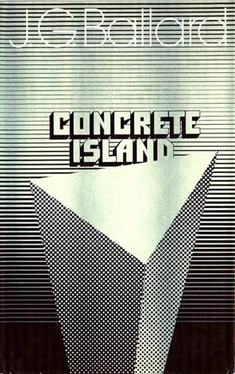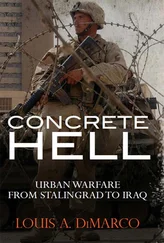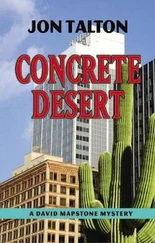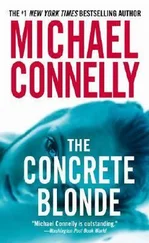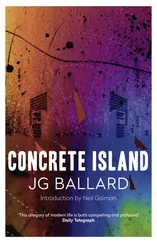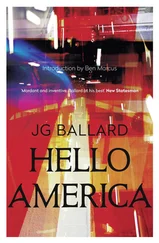When he had loaded the tools into his jacket pockets he straightened the crutch and set off towards the overpass, ignoring the cars that moved along the motorway. It was shortly after nine o'clock, and the traffic had slackened after the morning rush-hour. Already the warm sunlight was drawing from the damp grass the faint yellow haze that had hung over the island the previous afternoon, blurring the perimeter walls.
As he swung himself along, Maitland remembered that Catherine was collecting her new car that morning from the Japanese distributors. Helen Fairfax would be busy in the paediatric clinic at Guy's – ironically, neither would try to telephone him, each assuming that Maitland had spent the night with the other. For that matter, no one at his office would be particularly alarmed by his absence, taking for granted that he was ill or away on some urgent business, Maitland had trained his staff to accept his comings and goings without question. Several times he had flown to the United States, deliberately not notifying the office until his return. Even if he were away for a week his secretary would not feel concerned enough to call Catherine or Helen.
Painfully, his swing upset by the uneven ground, Maitland hobbled towards the wire-mesh fence. Below the grass he could identify the outlines of building foundations, the ground-plans of Edwardian terraced houses. He passed the entrance to a World War II air-raid shelter, half-buried by the earth and gravel brought in to fill the motorway embankments.
By the time he reached the fence, deep within the shadow of the overpass, Maitland was exhausted. He leaned his crutch against the fence and sat down on the black earth. From his pockets he took out the wrench, box spanner and pliers. The heavy metal tools had dragged at his shoulders, bumping against his bruised chest and abdomen.
No grass grew under the overpass. The damp earth was dark with waste oil leaking from the piles of refuse and broken metal drums on the far side of the fence. The hundred-yard-long wire wall held back mounds of truck tyres and empty cans, broken office furniture, sacks of hardened cement. Builder's forms, bales of rusty wire and scrapped engine parts were heaped so high that Maitland doubted whether he would be able to penetrate this jungle of refuse even if he could cut through the fence.
Still sitting, he turned to face the wire. High above him, almost contiguous with the clear April sky, was the concrete span of the overpass, its broad deck reverberating faintly under the pressure of the passing traffic. Holding the pliers in both hands, he worked away at a metal link, testing the steel cord against the teeth. In the dim light he saw that he had made only a faint notch. Maitland shivered in the cold air. Moving the wrench and box spanner along the ground, he edged towards the steel post ten feet away. Here the adjacent sections of wire were pinned to the post by a continuous steel flange bolted on to a backing plate by self-locking nuts.
Adjusting the spanner, Maitland worked away at one of the nuts. He was now too weak even to get a secure grip on the head, let alone put any pressure to bear. He looked up at the high wall of the fence – ten years earlier, perhaps ten days earlier, he would have been strong enough to climb the fence with his bare hands.
He threw down the spanner, and scratched with the wrench at the damp ground. Although slick with oil, the dark earth was as impenetrable as sodden leather. To dig a trench below the fence he would need to excavate at least a cubic metre of stony soil, force his way through a ten-feet-high pile of truck tyres, each of which weighed a hundred pounds.
The dark air bit at his bruised lungs. Shivering in his damp clothes, Maitland replaced the tools in his pocket. As he emerged into the sunlight, the deep grass waved around his thighs, as if trying to transfer some of its warmth to him. Maitland stared unsteadily at the distant embankments of the motorway system. He had not eaten now for nearly twenty-four hours and the first severe hunger pangs, so far blunted by the shock of the accident, made his head reel. With an effort he focused his eyes on the roof of the Jaguar. The car was barely visible above the grass, which seemed to have grown several inches during his abortive journey to the wire-mesh fence.
Rallying himself, he set off across the island towards its southern perimeter. Every ten paces he stopped and beat a pathway through the heavy nettles with the crutch. He reached a low wall, and climbed a flight of steps that lifted into the air from the remains of a garden path. These ruins were all that remained of a stucco Victorian house pulled down years earlier.
The surface of the island was markedly uneven. Covering everything in its mantle, the grass rose and fell like the waves of a brisk sea. A broad valley ran down the central spine of the island, marking out the line of a former neighbourhood high street. On either side, the grass climbed over blunted ledges and parapets, overran the empty area-ways.
Maitland crossed the central valley and mounted the slope on the southern side, picking a defile between two small elders that struggled with the invading nettles. The crutch rang out against a metal object underfoot, an iron plaque set into a fallen gravestone. He was standing in an abandoned churchyard. A pile of worn headstones lay to one side. A series of shallow gullies marked the row of graves, and Maitland assumed that the bones had been removed to an ossuary.
The high embankment of the feeder road rose above him. The traffic moving past thirty feet above his head was concealed by the crash barrier. The drone of engines blended into the distant sounds of the morning city.
Maitland swung himself along the foot of the embankment. The ground was littered with cigarette packs, stubs of burnt-out cigars, confectionery wrappers, spent condoms and empty match-books. Fifty yards in front of him the concrete caisson of a traffic sign protruded from the embankment.
Maitland quickened his step, jerking himself across the soft soil. As he guessed, a gutter ran along the foot of the caisson. The narrow gully, washed clear of all refuse by the rain, led around the concrete wall to the mouth of a drainage culvert. Behind its cast-iron grille the storm-tunnel ran into the embankment, emerging a hundred feet away.
Maitland tapped the grille with the crutch. He accepted without comment that he would not be able to unbolt the heavy metal structure. He stared down at the bars, for some reason wondering if they were wide enough apart for him to slip his hands between them. He turned and hobbled away through the refuse, stirring the cigarette packs with the crutch.
As he plodded along, head down, he broke into a flat and unemotional rage, ranting to himself at the unseen vehicles overhead.
'Stop…! For God's sake, I've had enough…!' When there was no reply he calmly continued on his way. The light air swirled the candy wrappers around his injured leg. As he crossed the island the grass weaved and turned behind him, moving in endless waves. Its corridors opened and closed as if admitting a large and watchful creature to its green preserve.
DURING the warm noon, Maitland slept inside his car. On the rear seat beside him were the water canister and a fresh bottle of Burgundy. He woke at two o'clock, as the driver of a dumper truck crossing the overpass switched his air-brakes on and off in a series of sharp detonations. Although the exertion of crossing the island had reinflamed his injured leg, Maitland's head felt clear. The sharp hunger pangs reached up from his abdomen into his throat like a steel hand, but he sat quietly in the rear seat. Resting through the early afternoon, he took stock of himself.
He realized, above all, that the assumption he had made repeatedly since his arrival on the island – that sooner or later his crashed car would be noticed by a passing driver or policeman, and that rescue would come as inevitably as if he had crashed into the central reservation of a suburban dual carriageway – was completely false, part of that whole system of comfortable expectations he had carried with him. Given the peculiar topography of the island, its mantle of deep grass and coarse shrubbery, and the collection of ruined vehicles, there was no certainty that he would ever be noticed at all. Given, too, the circumstances of his private and professional life, that once-so-convenient division between his wife and Dr Helen Fairfax, it might be at least a week before anyone was sufficiently suspicious to call the police. Yet even the most astute detective retracing Maitland's route from his office would be hard put to spot his car shielded by this sea of grass.
Читать дальше
Конец ознакомительного отрывка
Купить книгу
